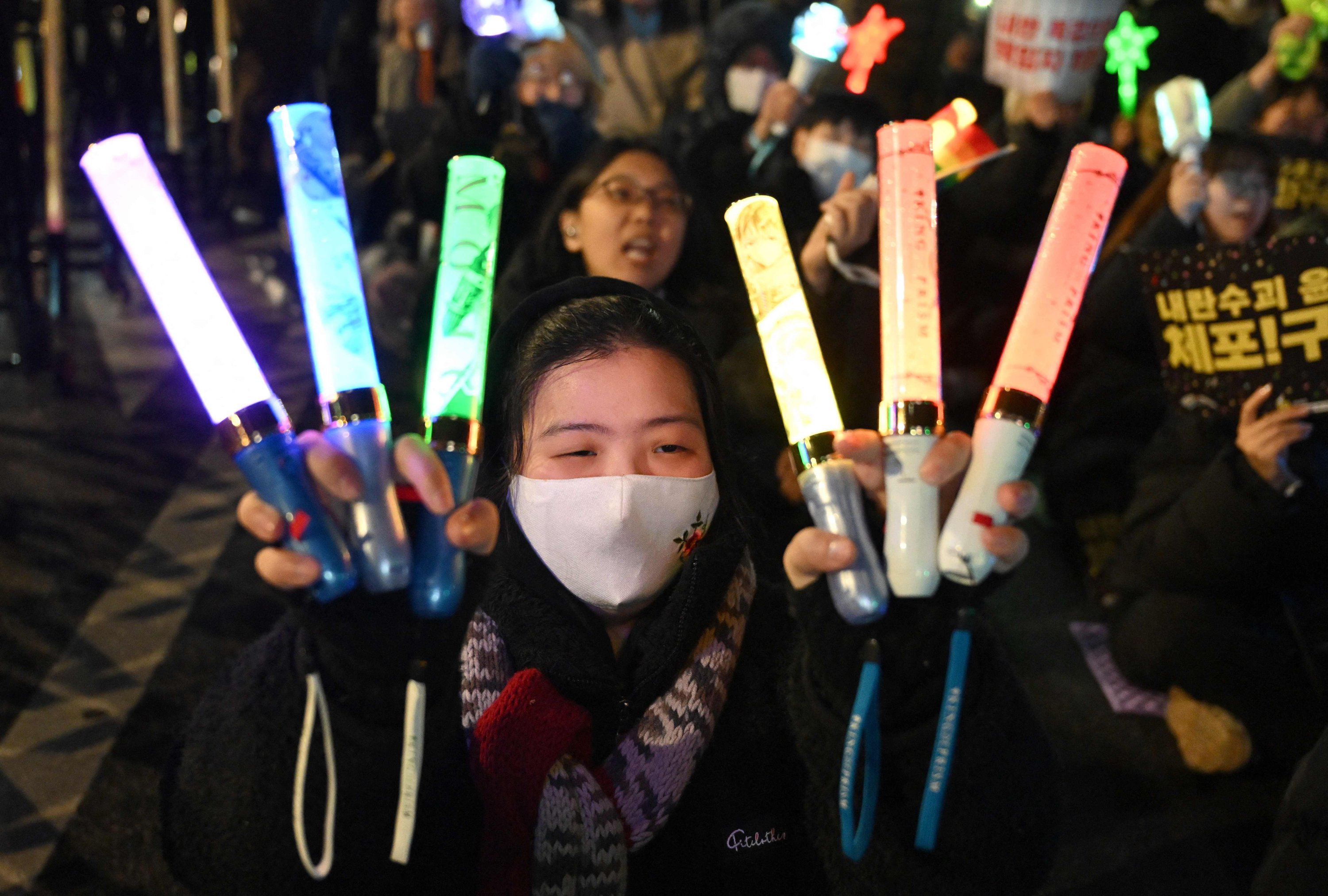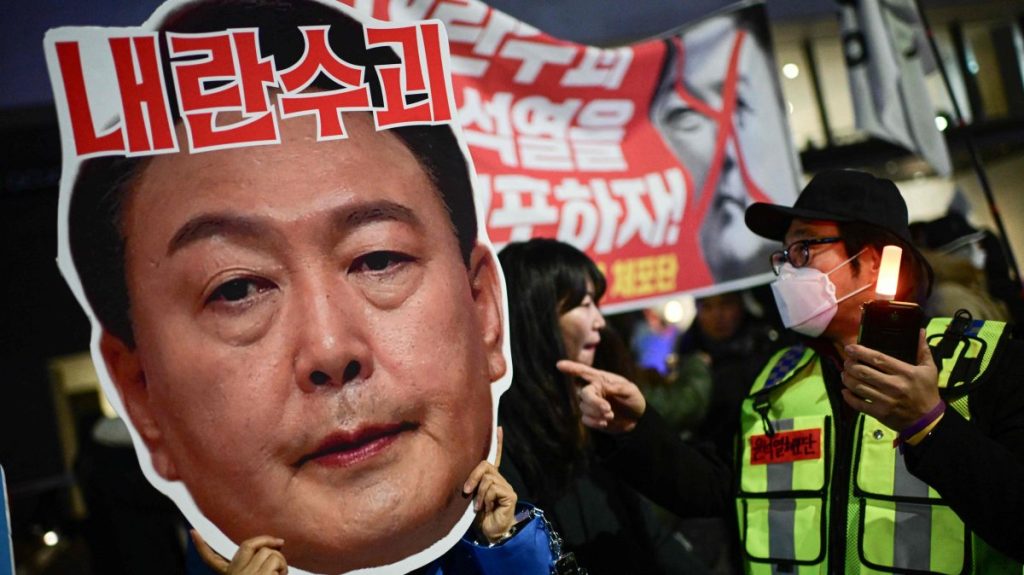South Korea’s protest culture is not just evolving but setting a new global standard for how popular culture and civic activism intersect. This shift, driven by young activists and K-pop fandoms, signals broader implications for the nation’s political landscape. It highlights the emergence of creative and inclusive activism that has the potential to reshape the future of South Korean democracy, providing a model for other societies navigating political and cultural challenges.
South Korea’s protest culture is undergoing a seismic transformation, driven by a new generation and the dynamic influence of K-pop fandom. The impeachment of President Yoon Suk Yeol on Dec. 14 marked not only a pivotal political event but also a defining moment for how civic engagement is evolving in the country. The convergence of young activists and K-pop fans, many of whom had never experienced state violence, has reshaped the landscape of political participation, bringing millions to the streets and compelling the National Assembly to pass an impeachment motion.
On Dec. 3, following a controversial martial law declaration by Yoon, the seeds of mass mobilization were sown. By Dec. 14, approximately 2 million people had gathered in the Yeouido district – a small area in Seoul – demanding accountability and systemic change. Among them, women in their 20s and 30s, bolstered by the K-pop fandom’s unique culture, played a leading role in these unprecedented demonstrations.
From concerts to activism
Lightsticks, long associated with cheering for K-pop idols, became symbols of defiance and hope during these protests. Their presence signified a fusion of pop culture and political expression, demonstrating how tools of entertainment could be repurposed as instruments of activism. By bringing the vibrant and inclusive energy of concerts into the protest space, lightsticks not only brightened the streets but also symbolized the creativity and resilience of the protesters.
Traditionally seen at concerts, these illuminated devices replaced candles, withstood rain and wind, and lit up the streets of Yeouido. K-pop songs, too, transformed the protests from somber gatherings into vibrant, festival-like expressions of democracy. This cultural shift was a direct result of the horizontal and non-hierarchical solidarity that defines K-pop fandoms.
These fandoms are no strangers to collective action. Rooted in a culture of voluntary participation and shared purpose, K-pop fans have long organized streaming campaigns, merchandise boycotts, and advocacy against agency mistreatment of artists. This spirit of organized yet decentralized action was on full display as fans shared protest information on platforms like X (formerly Twitter) and Instagram. Posts included maps of nearby restrooms, tips for staying safe during large gatherings and encouraging messages to motivate first-time protesters. They also coordinated group meeting points and distributed slogans, creating an efficient and welcoming environment for participants. They provided logistical support, such as maps of nearby restrooms, and created a welcoming atmosphere for first-time protesters.

The youth’s efforts turned the Dec. 14 protests into an intergenerational movement, blending young activists with older citizens and families. It highlights the growing political awareness among South Korea’s younger generation. Particularly, women in their 20s, a demographic often sidelined in political discourse, emerged as vocal leaders. Their active participation reflects a broader shift in societal expectations, where young people view civic engagement as not an option but a responsibility.
In Korean press interviews, participants shared how the inclusive, community-driven nature of the protests encouraged them to join. A 23-year-old university student noted that seeing photos of lightsticks at protests inspired her to participate, while others described how the familiar rituals of K-pop fandom – sharing snacks and bonding over mutual interests – created a sense of solidarity and safety.
New, responsible generation
The events of Dec. 14 also underscore the role of collective action in resolving national crises. The impeachment of Yoon within a week of escalating protests demonstrates the power of mass mobilization. The sequence began with Yoon’s controversial declaration of martial law on Dec. 3, which spurred widespread public outrage. Over the next few days, momentum built as K-pop fans and civic groups organized through social media platforms, culminating in a massive turnout of approximately 2 million people in Yeouido on Dec. 14. Their collective pressure compelled the National Assembly to act decisively, passing the impeachment motion and bringing the crisis to a head in record time. This swift resolution, achieved through the unified efforts of ordinary citizens and K-pop fans, highlights a new model for political participation in South Korea.
The crisis now awaits its final chapter: a decision by the Constitutional Court on whether to uphold the impeachment. Until then, Prime Minister Han Duck-soo serves as acting president. Regardless of the outcome, the protests have already set a precedent for how a new generation can reshape political culture through creative and inclusive activism.
Legacy of protests
The influence of K-pop fandom on South Korea’s protest culture cannot be overstated. Once dismissed as trivial or apolitical, these communities have demonstrated their capacity to drive meaningful change. As I observed, the horizontal, decentralized nature of fandoms mirrors a democratic ideal where power is dispersed and shared. This ethos has empowered the young generation and their allies to take center stage in a critical moment for the nation.
The Dec. 14 protests were not just a political event; they were a cultural and generational awakening, showcasing how South Korea’s youth and K-pop fandom have become catalysts for change. This movement has set a powerful precedent for future political activism, demonstrating the potential of creative, inclusive, and collective efforts to resolve national crises and shape a more democratic society. They revealed a South Korea where activism is vibrant, inclusive, and innovative – a testament to the power of youth and the enduring influence of K-pop.


